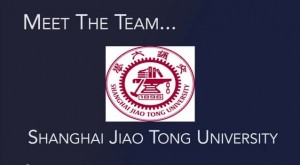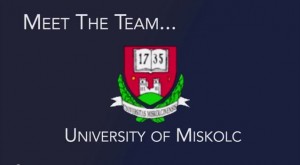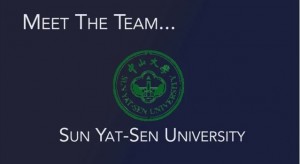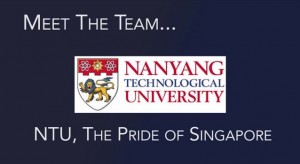The first team up in our third batch of ASC14 team profiles is Team Shanghai (from Shanghai Jiao Tong University). As usual, I have trouble pronouncing the name of the university, something so common that I’m not going to call it out anymore.
This is the second time Team Shanghai has competed at ASC. In their first outing the team did okay, but wasn’t a big winner. But that same team has traveled to Guangzhou, and they believe that they have a much better chance this year to taste the sweet nectar that comes with victory. (Now that’s a horrible sentence.)
While they have seen some problems in getting started this year, nothing seems to have taken them out of their game. One advantage they might have is the secret hiding place they found in the corner behind their booth. We discuss all of these points and more in the video.
Team Hungary, from the University of Miskolc, is the first Hungarian team to compete in any student cluster competition. In the video, you’ll see that they guys speak great English, but we have a bit of trouble hearing each other, even though I’m standing pretty close to them.
As the guys explain, this whole HPC thing is pretty new to all of them. This is the first time these students have been exposed to HPC systems, applications, and programming models. Given this inexperience, Team Hungary has already achieved quite a bit just by qualifying for the finals in Guangzhou.
They’re also running a difficult configuration. Their four nodes are supporting seven Phi co-processors, meaning they’re going to be relying heavily on the Phis to give their cluster enough processing power to challenge the teams with larger configurations. Optimizing these apps for any accelerator won’t be easy for students as new to the game as Team Hungary.
But one thing in their favor is a teammate who has the most technically advanced hairstyle I saw during my China trip. In the video we talk about his hair, and whether it has been optimized especially for the ASC competition, and if it will give them a clear advantage vs. the other teams.
Sun Yat-sen University is the home team at the ASC14 cluster competition. They’re hosting the event at the supercomputer center on their campus, we’re eating in their dining halls, and all of our student assistants are volunteers from the school.
They’re a very popular team at ASC14, as you’ll see from the video. They’re also pretty confident in this, their second time around at the ASC competition. According to the team, the apps are tougher this year, but so are they. They also are probably the only team that likes the time schedule and the rules – which may mean that they’ve figured a way to maximize their chances that other teams might not yet have discovered.
In the video, I try my usual array of lame jokes and try to get the team to predict that they’ll dominate the other competitors. However, the spokesperson for the team keeps her politically correct composure and doesn’t give the other teams anything to put up on the wall of their locker room.
The pride of Sinagpore, Nanyang Technological University, took a few minutes to talk to us. I bantered around with the team student spokesperson about what they were expecting from this, their first student cluster competition bout.
Team Singapore didn’t come to Guangzhou empty-handed. In addition to the eight-node cluster provided for them by Inspur, the students crammed ten NVIDIA K40 GPU accelerators into their luggage for use at the competition. What’s interesting is that they brought a mix of K40c and K40m GPUs. (The “m” models are passively cooled and use less juice.)
At the time of filming, they weren’t sure if they were going to install eight, nine, or all ten GPUs. It’s all dependent on how many they can use and still stay under the 3,000-watt power cap. (They ended up competing with nine GPUs – six passively cooled, three actively cooled.)
Nanyang is looking pretty good for a first-time team. They built a competitive cluster, and the mixing of passively cooled and actively cooled GPUs is an interesting idea.
Next up is our final batch of four ASC14 cluster warriors, the teams from Taiwan, Hong Kong, South Korea, and America’s heartland…
Posted In: Latest News, ASC 2014 Guangzhou
Tagged: supercomputing, Student Cluster Competition, HPC, Inspur, Sun Yat-sen University, ASC 2014, Shanghai Jiao Tong University, University of Miskolc, Nanyang Technological University, Meet the teams




